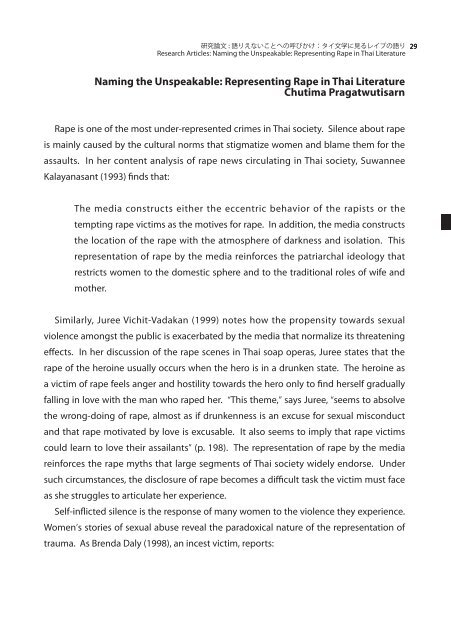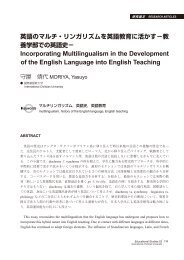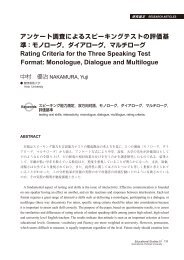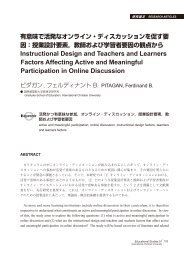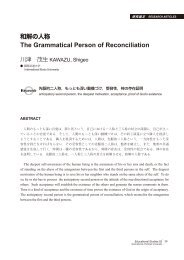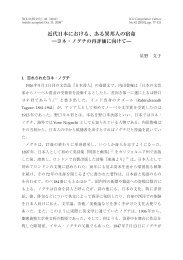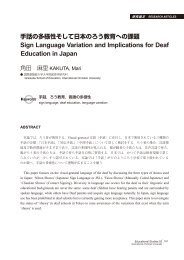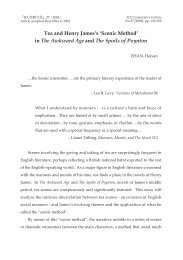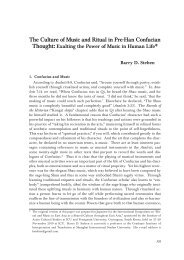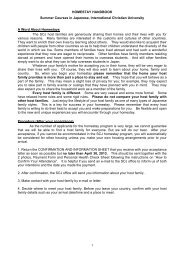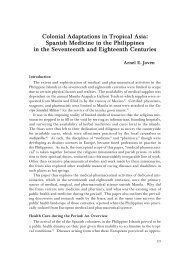Untitled - subsite - å½éåºç£æ大å¦
Untitled - subsite - å½éåºç£æ大å¦
Untitled - subsite - å½éåºç£æ大å¦
You also want an ePaper? Increase the reach of your titles
YUMPU automatically turns print PDFs into web optimized ePapers that Google loves.
: <br />
Research Articles: Naming the Unspeakable: Representing Rape in Thai Literature 29<br />
Naming the Unspeakable: Representing Rape in Thai Literature<br />
Chutima Pragatwutisarn<br />
Rape is one of the most under-represented crimes in Thai society. Silence about rape<br />
is mainly caused by the cultural norms that stigmatize women and blame them for the<br />
assaults. In her content analysis of rape news circulating in Thai society, Suwannee<br />
Kalayanasant (1993) finds that:<br />
The media constructs either the eccentric behavior of the rapists or the<br />
tempting rape victims as the motives for rape. In addition, the media constructs<br />
the location of the rape with the atmosphere of darkness and isolation. This<br />
representation of rape by the media reinforces the patriarchal ideology that<br />
restricts women to the domestic sphere and to the traditional roles of wife and<br />
mother.<br />
Similarly, Juree Vichit-Vadakan (1999) notes how the propensity towards sexual<br />
violence amongst the public is exacerbated by the media that normalize its threatening<br />
effects. In her discussion of the rape scenes in Thai soap operas, Juree states that the<br />
rape of the heroine usually occurs when the hero is in a drunken state. The heroine as<br />
a victim of rape feels anger and hostility towards the hero only to find herself gradually<br />
falling in love with the man who raped her. This theme, says Juree, seems to absolve<br />
the wrong-doing of rape, almost as if drunkenness is an excuse for sexual misconduct<br />
and that rape motivated by love is excusable. It also seems to imply that rape victims<br />
could learn to love their assailants (p. 198). The representation of rape by the media<br />
reinforces the rape myths that large segments of Thai society widely endorse. Under<br />
such circumstances, the disclosure of rape becomes a difficult task the victim must face<br />
as she struggles to articulate her experience.<br />
Self-inflicted silence is the response of many women to the violence they experience.<br />
Womens stories of sexual abuse reveal the paradoxical nature of the representation of<br />
trauma. As Brenda Daly (1998), an incest victim, reports:


